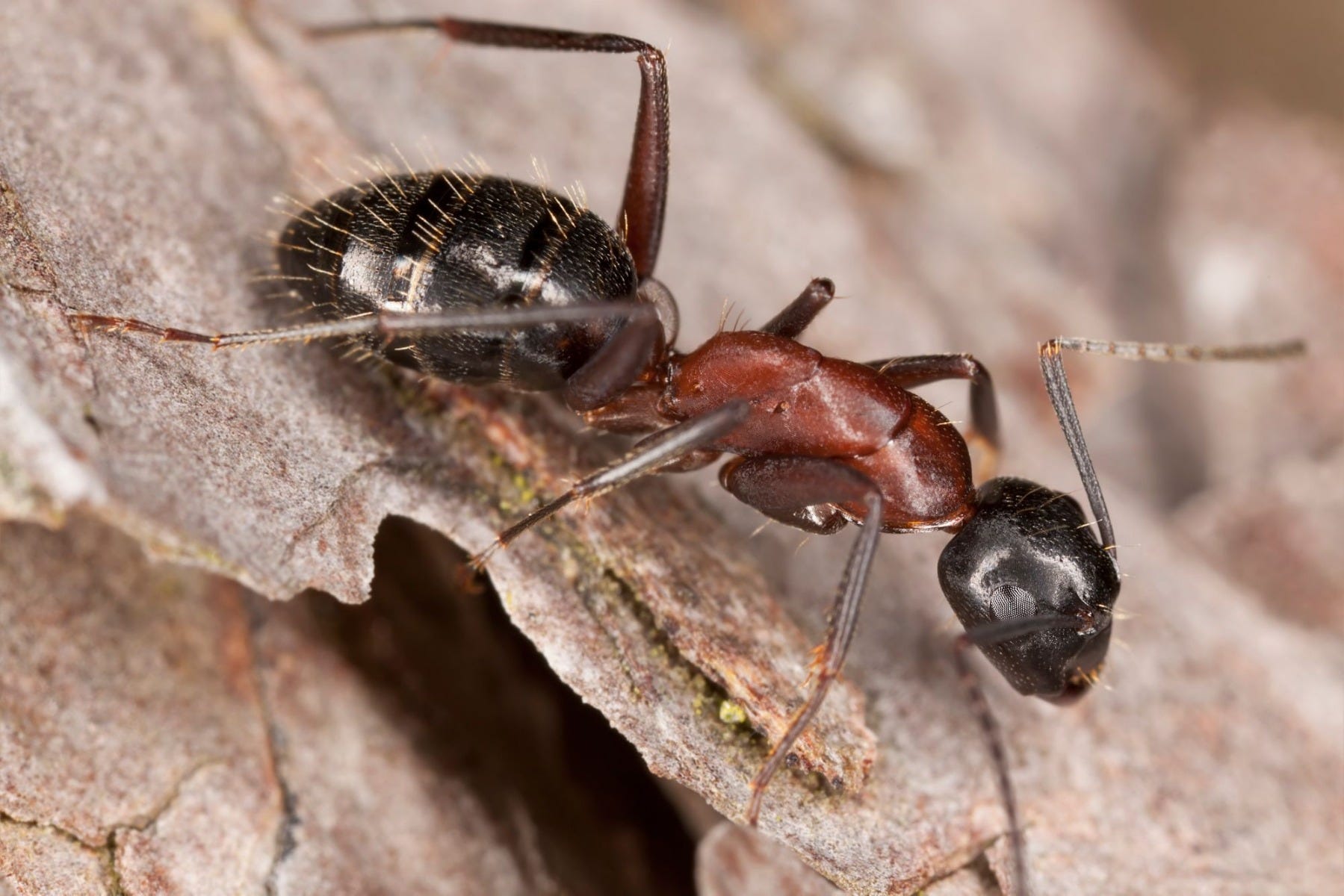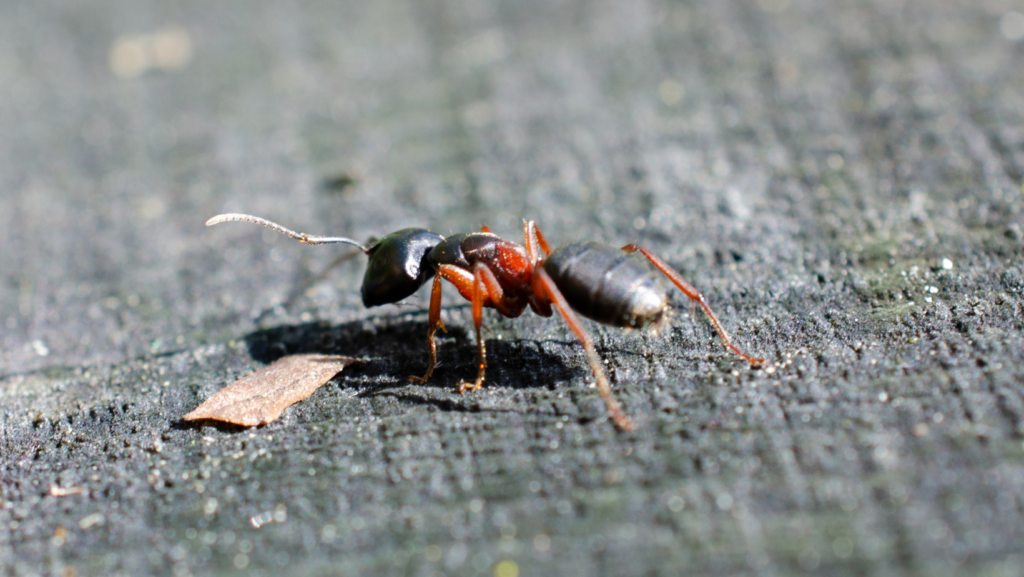Why Select Our Termite Control Services: Professional Solutions for Effective Security
Why Select Our Termite Control Services: Professional Solutions for Effective Security
Blog Article
Ecological Effect of Insect Control: Balancing Performance With Sustainability
The environmental impact of pest control is a vital issue that needs a fragile balance between attaining effectiveness in handling insects and guaranteeing sustainability of our ecosystems. As we make every effort to secure our crops, homes, and wellness from the risks posed by bugs, the methods we use can unintentionally harm the atmosphere. From using harmful chemicals that leak into our soil and water to the unplanned repercussions on non-target varieties, the consequences of standard insect control techniques are far-reaching. There are arising approaches that use hope for an extra lasting method to pest administration. These solutions not only goal to address the instant parasite problems however likewise take into consideration the long-lasting wellness of our planet.
Unsafe Chemicals in Parasite Control
The application of dangerous chemicals in parasite control postures substantial ecological and health and wellness dangers that require cautious consideration and mitigation techniques. Herbicides, pesticides, and pesticides are frequently utilized to remove insects, however their widespread application can lead to unintended effects. These chemicals can contaminate soil, water resources, and the air, impacting not only the targeted pests yet additionally useful bugs, wildlife, and human beings.

To address these risks, integrated pest management (IPM) strategies are being advertised as an extra lasting option. IPM entails a mix of methods such as biological control, habitat manipulation, and the targeted use of chemicals as a last hotel (ant control mint hill nc). By taking on an all natural method to pest control, we can reduce the ecological and wellness influences related to damaging chemicals while effectively taking care of pest populations
Influence On Non-Target Variety
Taking into consideration the unexpected consequences of pest control techniques, the influence on non-target varieties is a crucial aspect that calls for complete assessment. While parasite control steps intend to target particular parasites, various other organisms in the ecosystem may be unintentionally affected. Non-target varieties, including valuable bugs, birds, creatures, and also plants, can experience straight or indirect damage from chemical applications or biological control techniques.
Insecticides created to deal with a certain insect parasite might damage pollinators like or all-natural predators such as ladybugs. Biological control representatives, if not species-specific, can posture risks to unintended targets, disrupting the ecological balance.
To reduce the effect on non-target types, integrated insect administration (IPM) techniques that highlight a holistic technique to pest control are recommended. These methods prioritize using eco-friendly methods, decreasing injury to beneficial microorganisms while successfully handling pest populations. Conducting comprehensive risk analyses and keeping track of the results of bug control efforts are essential action in guarding non-target types and promoting total ecological community wellness.
Soil and Water Contamination
Unplanned environmental repercussions of parasite control techniques expand past influencing non-target species, with considerable effects for dirt and water contamination - termite control. Chemicals, herbicides, and chemical fertilizers utilized in bug control can seep into the soil and contaminate groundwater, posturing a threat to both earthbound and water ecosystems.
Water contamination is one more essential issue connected with bug control methods. Drainage from farming areas treated with chemicals can lug these chemicals into nearby water bodies, influencing water microorganisms and water top quality. Contaminants in water sources can have far-reaching repercussions, affecting not just marine life however also human health through the consumption of contaminated water or aquatic microorganisms. To mitigate soil and water contamination from pest control tasks, incorporated parasite monitoring strategies that prioritize sustainability and decrease chemical inputs are critical.
Air Air Pollution From Pesticide Use
Direct exposure to air-borne pesticides during farming applications presents a substantial issue for air pollution control procedures. Additionally, pesticide drift, where pesticides are lugged by the wind to unexpected areas, can lead to the contamination of nearby ecosystems and water bodies.

Approaches for Sustainable Parasite Control
In the realm of agricultural methods, applying sustainable bug control techniques is extremely important for maintaining environmental equilibrium and protecting plant yields. Sustainable pest control stresses the use of eco pleasant approaches to manage pest populations efficiently while reducing damage to non-target microorganisms and ecological communities. Integrated Pest Monitoring (IPM) is an extensively taken on strategy that integrates organic, social, physical, and chemical control techniques to accomplish long-lasting insect management solutions.
One trick strategy in sustainable insect control is promoting biodiversity within agroecosystems. By enhancing all-natural adversaries of parasites, such as parasitoids and killers, farmers can reduce the demand for artificial pesticides. Crop turning and diversity are likewise reliable strategies to interrupt pest life cycles and create much less beneficial conditions for click now pests to flourish. In addition, using pest-resistant crop varieties and employing strategies like trap cropping can aid minimize bug pressure without relying greatly on chemical interventions. Ultimately, by incorporating these sustainable parasite control techniques, farmers can achieve an equilibrium between pest management performance and environmental stewardship.
Final Thought
Finally, the ecological effect of parasite control methods need to be thoroughly taken into consideration to balance efficiency with sustainability. Damaging chemicals used in parasite control can lead to dirt and water contamination, air pollution, and injury non-target types - ant control. It is vital to implement sustainable bug control strategies to reduce these unfavorable results on the setting and promote a healthier environment for future generations
By taking on a holistic technique to pest control, we can minimize the environmental and wellness impacts associated with unsafe chemicals while effectively handling pest populations.
To mitigate the air contamination caused by pesticide usage, it is necessary to adopt incorporated pest administration strategies that prioritize the usage of non-chemical insect control methods, such as crop rotation, all-natural killers, and resistant crop selections. Sustainable parasite control emphasizes the usage of environmentally friendly approaches to manage bug populations properly while decreasing harm to non-target organisms and communities. Integrated Parasite Management (IPM) is a commonly taken on approach that combines organic, cultural, physical, and chemical control techniques to accomplish lasting bug management solutions.
Report this page